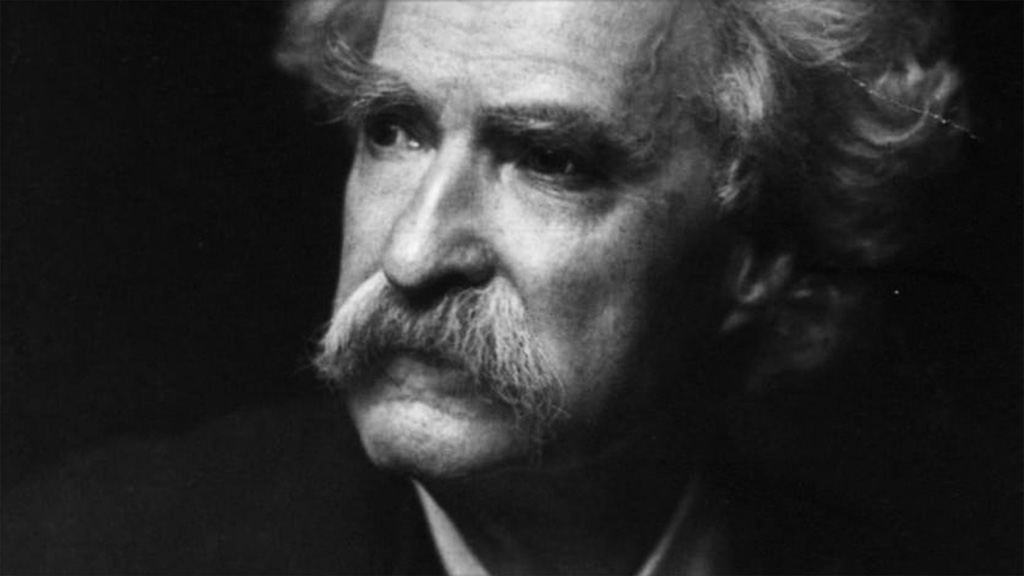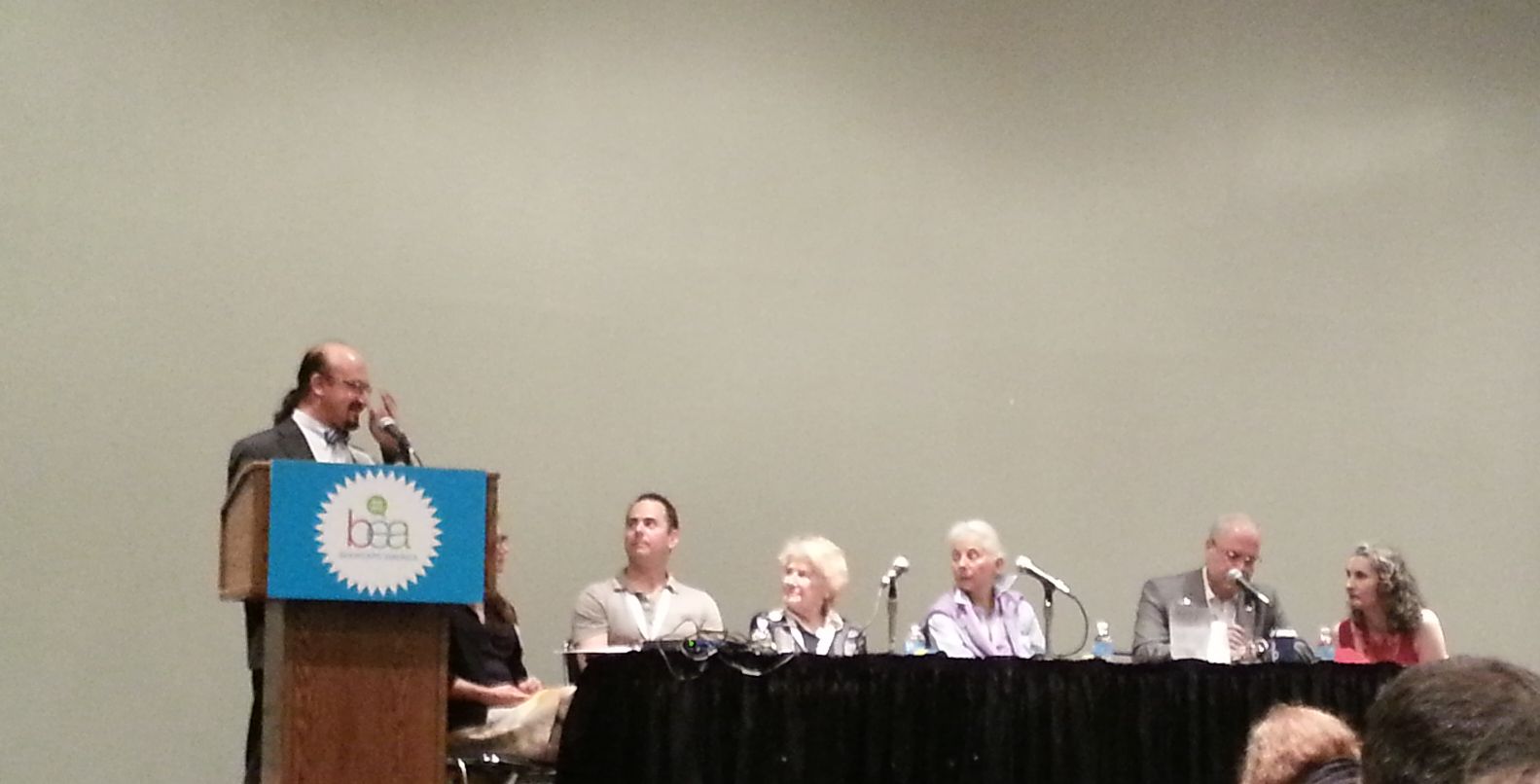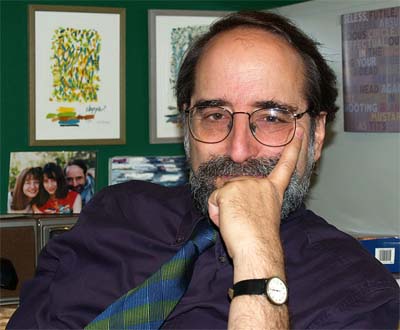On Friday afternoon, mere minutes after the frazzled feline star of a viral video had been flown in from Morristown, Arizona and dragged against its will onto the Javits floor to receive the kind of superstar adulation that literary geniuses toiling for decades would die for a tiny piece of, three dozen people met in the rank underbelly of a cold corporate convention center to contend with issues of translated literature.
This was the clearest indication I have ever seen of what Chad Post has identified as the “three percent problem” — whereby a mere 3% of all published books in the United States are works in translation. The underattended panel made me hang my head in shame.
I had not known that Grumpy Cat was at BEA, nor did I care to meet the animal or wait in line upon learning of this intelligence. There were more meaningful ways to fritter away two hours of my life. Indeed, I had encountered Open Letter‘s Chad Post on the loud floor just before the panel and personally apologized for not doing enough for translated literature. He then told me about an insane man in Italy and secured my attendance.
There were several translators and foreign language enthusiasts in the crowd, including Michael A. Orthofer and Scott Esposito (both tireless proponents for literature in translation), but the panelists pointed out the paucity of editors in the audience and seized upon this absenteeism to talk freely.
“In the long view,” said Susan Bernofsky, director of literary translation for Columbia’s School of the Arts, “we want to find an English language voice for our foreign language author. In the short run, editors want very different things. Editors want books that will read well in English and that sell. The translator wants to represent what the language said.”
Bernofsky pointed to FSG’s Elisabeth Sifton as an editorial paragon. Sifton gave Bernofsky carte blanche to translate Gregor von Rezzori however she wanted. He wasn’t especially edited in German. So he had wanted his English translation to be well edited, even if it meant obliterating whole pages and paragraphs.
I was not as well-versed on translated literature as the assembled crowd, but I was surprised by how liberal the editing process was. Post described going much further on a memoir that had a plodding section set in the 1980s. The ten page section began with the sentence, “I remember nothing good from those years.” Post felt that cutting everything that followed that sentence was an improvement.
Translator Mary Ann Caws pointed out to several fraught experiences she had encountered in her years. She described working on an anthology, where her translation was taken out of her hands and given to someone else who dumbed everything down. She described battles translating André Breton’s most famous poem, “Free Union.” The first two words of the original poem is “Mon amour.” One translation of the poem’s first line reads “My wife whose hair is a brush fire.” Another reads “My woman with her forest-fire hair.” The difference between “My wife” and “My woman” is substantial because of the connotation of the relationship. But Caws pointed out that “there’s a way of doing it without her or she” with phrases like “My dear one has gone into the streets of the city.”
Caws had also suggested publishing several translations around a sonnet to demonstrate the impossibility of a perfect translation. The editor replied, “How will they know which is the right translation?”
Victoria Wilson has been an editor at Knopf for forty years. And she insisted that cutting text has little to do with saleability, but how the book reads. “A book is going to sell if it’s 150 pages shorter,” said Wilson, who was also careful to note that she had published William Gass for twenty years.
“People ascribe motives to the publisher,” continued Wilson. “We’re all just people. I bought the book. I fought for the book.”
This was all constructive chatter, but the panel’s fireworks really started when Polish crime writer Marek Krajewski began speaking with gusto through a translator.
“In my mind,” said an animated Krajewski through his translator, “the editors who work with people who have huge egos really can’t adjust and are narcissistic. These kinds of editors treat their authors as total failures. There are editors, on the other hand, who tend to do work just for the sake of doing it. To justify their presence there.” Krajewski bemoaned editors who didn’t understand his work, including one who was “basically taking out the F words.”
“Some of them tend to be shy and don’t ask that any questions,” said Krajewski of his translators. He pointed to one who couldn’t be bothered to flesh out an abbreviation. “I had the full information. And I do know she knows how to do it. Well, sometimes, it happens that the editor is very detail-oriented.”
One of Krajewski’s books concerned multiculturalism, which turned out to be a problem for the editor and the translator. “It’s not only translating language,” said Krajewski. “It’s translating cultures.”
Bernofsky noted that she had just done a new translation of Jeremias Gottheif’s The Black Spider for NYRB Classics. Because Gottheif’s work was a horror story, the editing was much different from what she had usually experienced.
“The prose is not that amazing,” said Bernofsky. “Edwin Frank did a very heavy edit on some of the prose. He was editing both me and Gottheif. He rearranged the sentences.” Bernofsky signed off on the translation, even though the reviewer comparing the original with the translation will find it inaccurate. But for prose stylists like Robert Walser, Bernofsky said that she would “fight for keeping the complexity of the sentences.”
There was a question concerning changes in publishing over the past 40 years, in which the publishers were blamed for the drop of translated fiction in bookstores. “You can’t just look at the publishers,” noted Wilson. “The chains changed everything in terms of their ordering.” In other words, it doesn’t really matter whether a corporate behemoth owns a big publisher or not. The fate of translated literature in the States is entirely dependent on what the bookstores order. And while the recent health of independent booksellers has suggested new prospects for translated fiction, without massive orders from chains, it is often difficult for these books to be published.
This reality was simply too much for Chad Post, who began talking fast and angry.
“Every book out there is shitty,” boomed Post into the mike. “Mitch Albom? What the hell? We do not need him.”
There were some faint suggestions that Post was prepared to overturn the table, fire a pistol into the air, and demand the rightful liberation of the book industry.
“Malcolm Fucking Gladwell,” shrieked Post. “I’ve never been quite disturbed by the book business than I have been in the last few days.”
I squinted to see if the veins on Chad Post’s neck had popped out. I waited for Post’s instructions to don the balaclava carefully folded in my left inner pocket. I waited for Post to announce the Occupy Javits movement.
“I would shoot myself if I had to publish most of the books out there.”
With this suicidal statement in full swing, Post’s phone began to ring on stage. Mitch Albom’s people were coming to shut the wild-eyed revolutionary from Rochester down. Post was referred to as “that angry young man” by the next questioner.
To be clear, Post was not all froth and spittle. I could relate very much to his fury. We live in strange times when Amazon Crossing is the number one American publisher for translated fiction. As Post pointed out, it isn’t easy to secure advocates for translated work when the pitch is “Here’s a great book about a woman in Latvia who is depressed.” But perhaps with more passion, we’ll work out the kinks and expand the egregious percentage.


